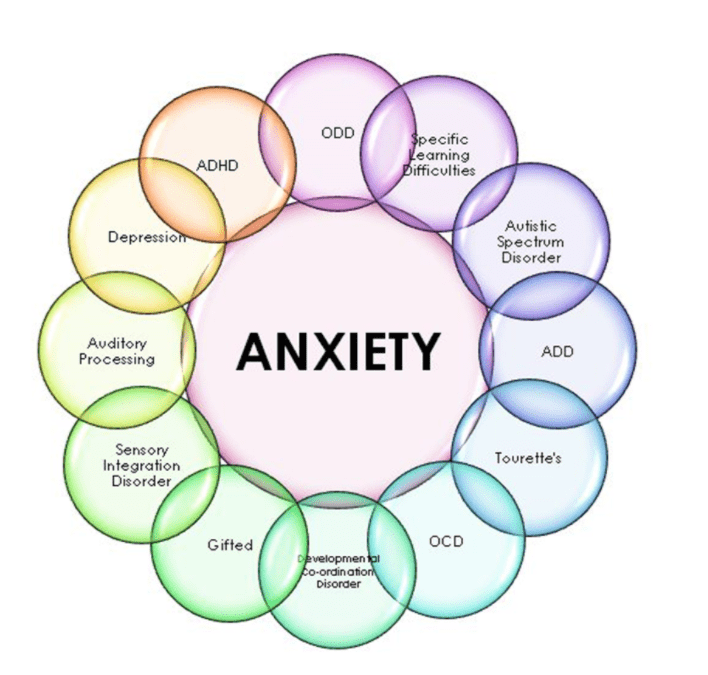Remember your first day in college. The fast breathing, cold sweats, heart pounding in the chest, trouble sleeping, feeling of dread and worry. Some of us might have gurgling in the stomach and others might have overactive bladder due to thinking a lot. These are nothing but signs of anxiety. Anxiety is a normal reaction of human beings towards tuff situations. Most of us must have felt these symptoms sometime or the other in life. Sometimes, these signs help us to meet our targets at work. This means, it is a positive stress as it pushes us to work harder and achieve our goal.
Anxiety becomes a problem when the reaction of the person in each situation appears in a highly intense form and out of proportion than what one usually expects. If the episodes of such extreme anxiety appear frequently, prolonged and intensified, they tend to interfere with the normal activities in everyday life and puts an adverse impact on relationships.
That is termed as Anxiety disorder. It is the second most common mental illness.
There are various types of anxiety disorders, like social anxiety, panic, generalized anxiety, substance-induced anxiety, and separation anxiety.
Causes:
There can be various causes for anxiety:
- Genetic or hereditary relationship: A person with the familial history of stress and anxiety are more prone to have anxiety in future
- Medical conditions: People suffering from a medical condition are predisposed to anxiety, stress and depression
- Drug-induced: Anxiety also tends to arise from abuse of or as withdrawal symptoms of certain drugs and alcohol.
Signs and symptoms:
Anxiety is a psychological condition which is generally diagnosed by following symptoms:
- Feeling extremely anxious about everything and do not enjoy the moments which a normal person does enjoy
- Time passes too slowly or too quickly: Person suffering from anxiety tries to do everything in hurry and it’s hard for him to do time management
- Panic Attack: Feeling hysterical as if about to go crazy.
- Shortness of Breath with palpitations: Heart beats faster than normal and the breathing also becomes faster than normal.
- Extreme Stress: Feeling of excessive mental pressure.
- Irritability: During an anxiety attack, a person can feel a lot of irritability.
- Mood Swings: Feeling almost illogically happy one moment and gloomy the very next moment
- Sensitive to slightest of change in environment
Diagnosis:
Anxiety can be present as a sole diagnosis or it can be present as a major symptom of a pre-existing medical condition as mentioned in the following diagram.
Role of homeopathy in Anxiety
Homeopathy plays a big role in the nervous system, hence, treats psychological diseases in the most effective way.
Physical and mental symptoms together form the totality of a case. Every person presents a disease in a different way. Depending upon the symptoms of a patient, the best-suited medicine is prescribed. Homeopathy treats the patient holistically without causing any adverse/side effects.
There are different medicines for anxiety depending upon the cause and the presentation of the symptoms.
Conservative treatment:
There are a few small steps that can be beneficial to overcome anxiety. A few of them are listed below:
- Taking a walk regularly
- Doing regular exercises
- Ensuring adequate sleep
- Avoiding use of alcohol
- Quitting smoking if you are habitual to it.
- Adapting techniques like yoga and meditation to manage stress.
- Increasing the intake of water, green vegetables, and fruits
- Joining some anxiety support group
- Sharing your problems with family members or doctor and avoiding isolation

